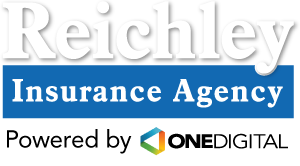You Can Teach Old Dogs New Tricks
Tom and Harry are in Tom’s garage, working on an old car. The hood is up, tools are scattered, and they’re wiping grease from their hands as they chat. The conversation gradually turns to insurance, a topic they often debate.
Tom (tightening a bolt under the hood):
You know, Harry, I’ve been thinking a lot about the role of insurance agents. They’re not just there to sell policies. A good agent educates their clients and presents different options. It’s about giving people the knowledge they need to make informed decisions.
Harry (leans against the car, shaking his head):
I don’t know, Tom. I feel like people can find most of that information online. Insurance agents are just middlemen trying to upsell you on stuff you don’t need. Half the time, they complicate things more than they help.
Tom (wiping his hands on a rag):
I get where you’re coming from, but think about this—insurance is complicated. Sure, you can look things up, but there’s a reason people study for years to become experts in the field. A good agent helps simplify things. They break down all those confusing terms, guide you through what really matters, and make sure you’re not underinsured or overpaying.
Harry (laughs):
Simplify? Come on, most of them just throw a bunch of papers at you and hope you don’t ask too many questions. Besides, there are comparison websites now that can do what agents do—probably faster too.
Tom (raising an eyebrow):
But those websites can’t ask you the right questions. They don’t know your specific needs, like if you’ve got this old car we’re fixing up that you only drive on the weekends. Or maybe you’ve got a home business on the side, which changes your insurance needs. An agent does more than spit out rates; they tailor a plan to fit your lifestyle. They’re problem-solvers.
Harry (smirking):
Maybe, but at the end of the day, they’re still trying to sell you something. They’ve got quotas to hit.
Tom (shrugs):
Yeah, they’re salespeople, but that doesn’t mean they’re not working in your best interest. The best agents aren’t just chasing commissions; they’re building long-term relationships. Look, I’d rather have someone who knows my situation and checks in every year to see if my coverage still makes sense than rely on an algorithm.
Harry (pauses for a moment, then chuckles):
Alright, you got me there. There’s something to be said for the personal touch. Maybe I’m just too skeptical. But still, isn’t that what customer service lines are for?
Tom (grinning):
Customer service? You mean the hours on hold, the scripted answers, the lack of follow-up? That’s not the same as having someone who knows your name, your family, your specific situation. An agent can be your advocate when things go sideways. They can help navigate claims and negotiate with the insurance company. Try getting that from a website or a 1-800 number.
Harry (nodding slowly):
Alright, alright, point taken. I guess having someone who actually cares about your needs, not just the transaction, does make a difference. Maybe insurance agents do have more value than I thought.
Tom (laughs and pats Harry on the back):
Glad you’re finally seeing the light, buddy. Now, hand me that wrench, and let’s get this car running—just don’t forget to call your insurance agent once it’s roadworthy!
Harry (grinning as he hands over the wrench):
You win this round, Tom. Maybe I’ll give my agent a call after all.













